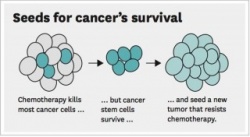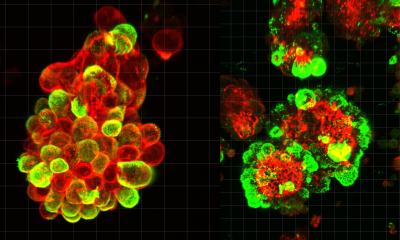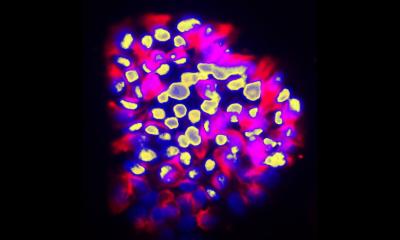Oncology
Scientists root out the ‘bad seeds’ of liver cancer
Researchers have found the “bad seeds” of liver cancer and believe they could one day reprogram them to remain responsive to cancer treatment, a new study has found.

The key to disrupting chemo-resistant stem cells that become liver tumors from multiplying is to target the stem cell marker NANOG, said Keigo Machida, senior author and associate professor of molecular microbiology and immunology at the Keck School of Medicine of USC.
NANOG is scarce in early-stage cancer but abounds in Stage III liver cancer. It promotes the cancer’s spread by rewiring metabolism in the mitochondria — a cell’s energy factory. “We identified the Achilles heel in cancer therapy,” Machida said. “There are bad seeds in cancer. Even though we treat patients with chemotherapy, those bad seeds survive and force relapse. That’s why we would like to target the bad seeds in cancer to eradicate recurrence problems and metastasis, which is when the cancer spreads to other parts of the body.”
Eliminating resistance
The study included patient-derived stem cells and hundreds of mice with liver tumors. Researchers believe it is the first scientific article to identify the carcinogenic pathway of stem cell marker NANOG and to posit NANOG as a target that will eliminate patient resistance to Sorafenib, the most common chemotherapy used on liver cancer patients.
Liver cancer is on the rise. An estimated 24,550 people died of the disease in 2015, according to the National Cancer Institute. Only 17.2 percent of people diagnosed with liver cancer survive for five years or more.
A new cancer treatment target
To learn how NANOG reprograms stem cells that foster tumor growth, researchers examined proteins, messenger RNA and cell metabolism in the liver, said Vasu Punj, a co-author and lead bioinformatician at the USC Epigenome Center. “Mitochondria-metabolism targeted therapy in cancer is being increasingly recognized as a promising area for future development of new, personalized treatment strategies,” said Punj, an associate professor of research medicine at Keck Medicine of USC. “If you reduce the cellular response to mitochondrial oxidative phosphorylation-fatty acid oxidation molecules, NANOG will not be able to promote cancer progression. This will enable researchers to develop novel therapeutic strategies for that cancer.”
Source: University of Southern California
19.02.2016





